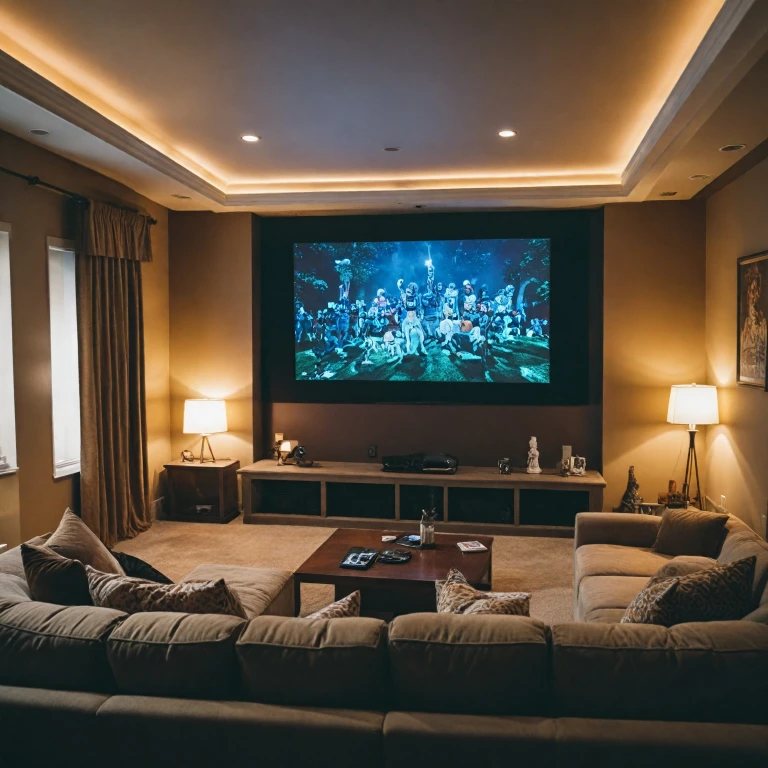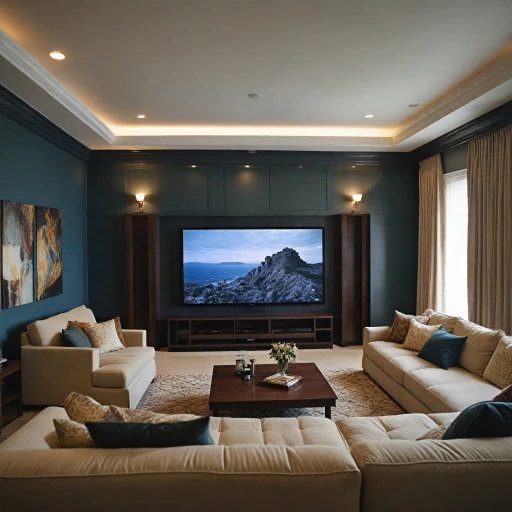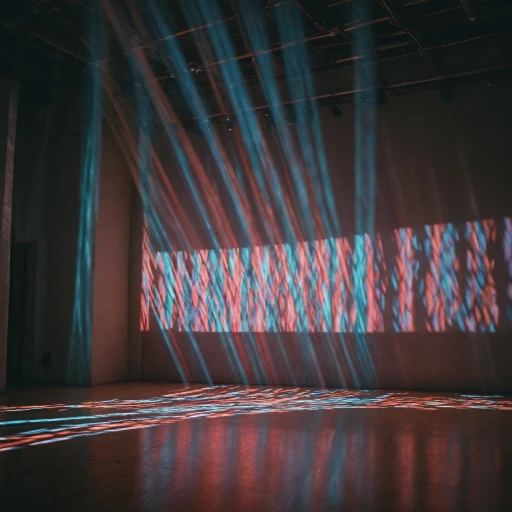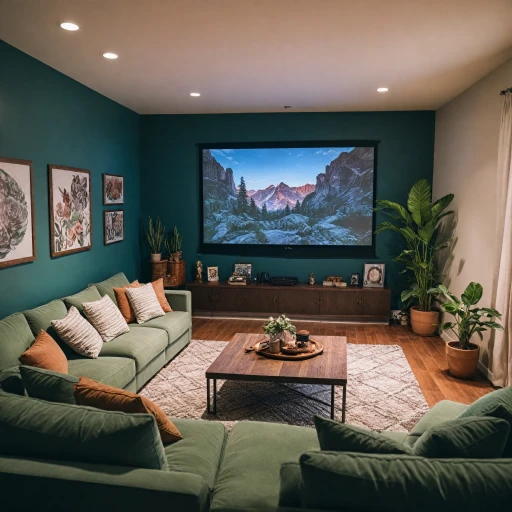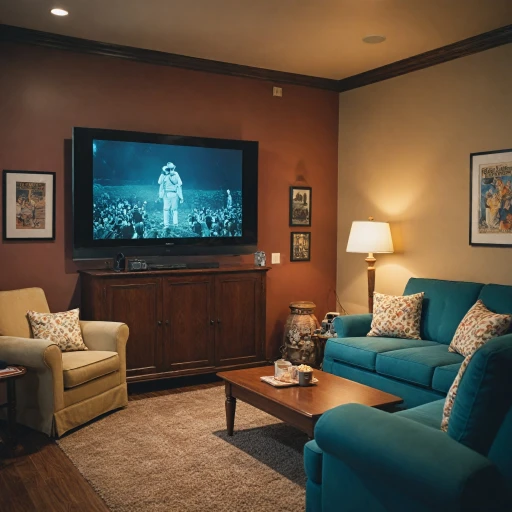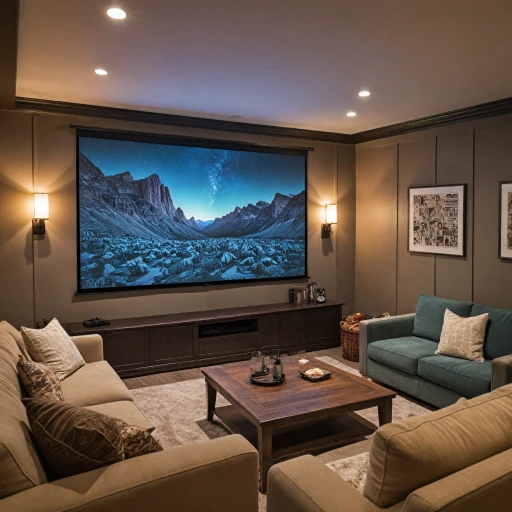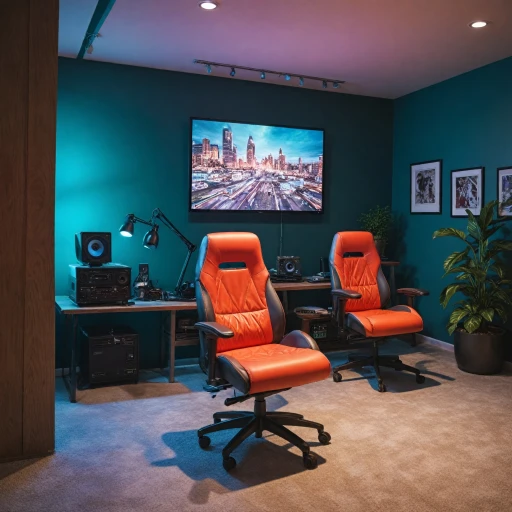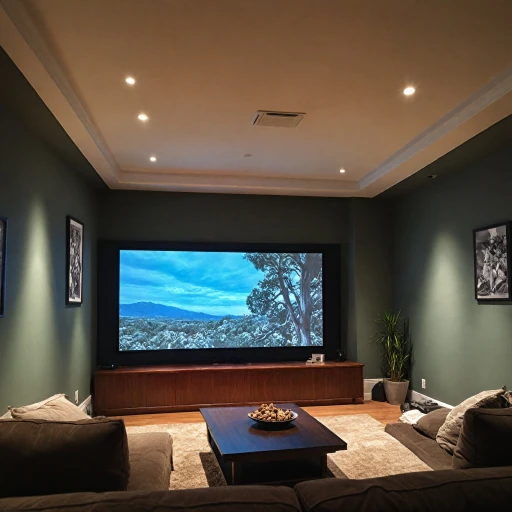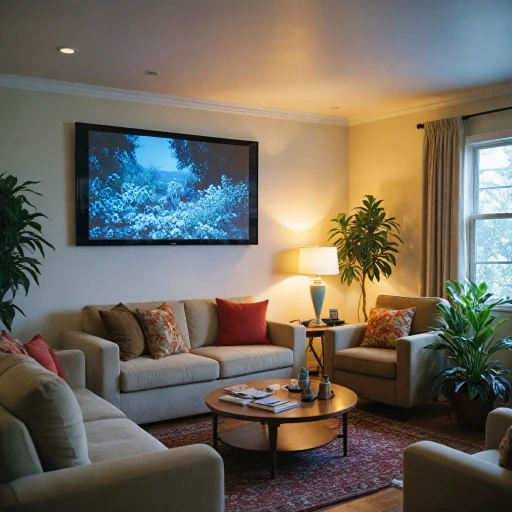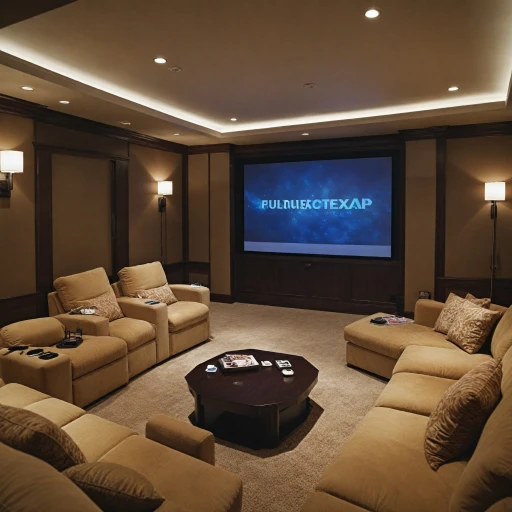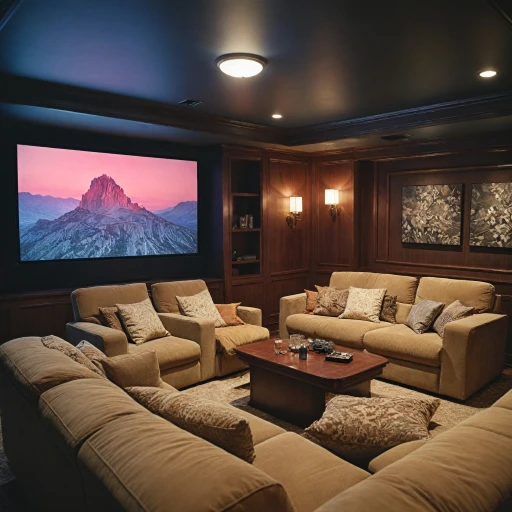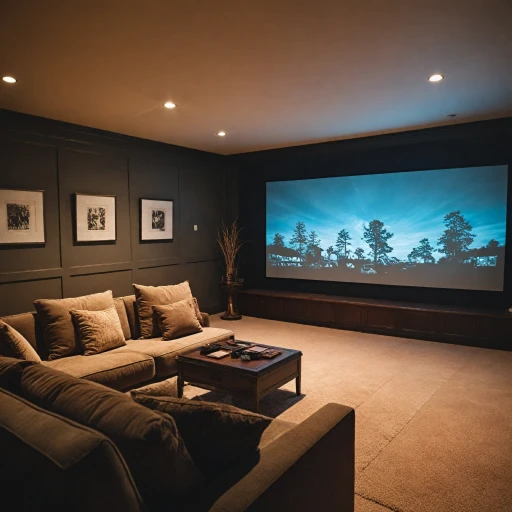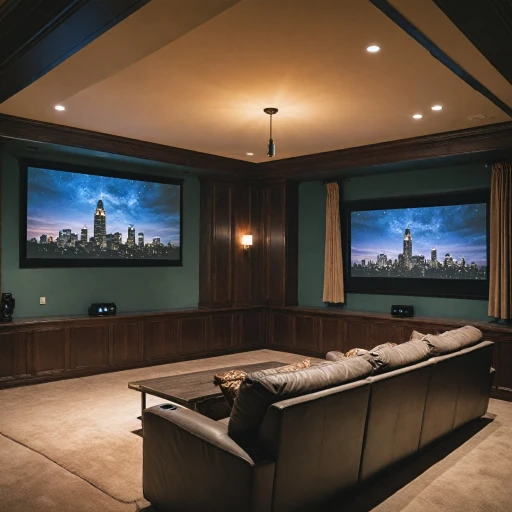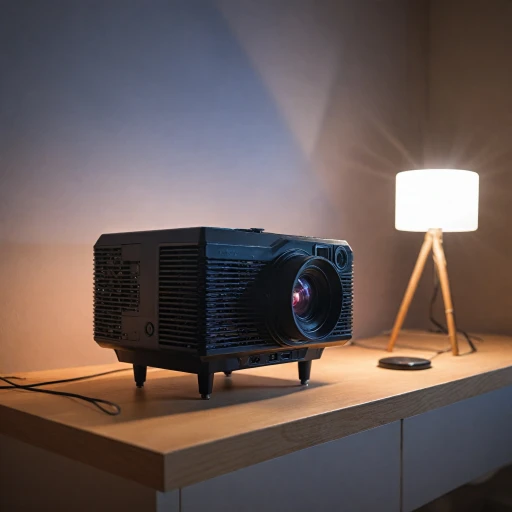
Understanding Lumen and Its Importance
Deciphering Lumens: The Backbone of Projector Brightness
Understanding lumens is essential when diving into the world of home theater projectors. Lumens measure the brightness emitted by a light source, playing a crucial role in determining the image quality and overall viewing experience of your projector. Modern projectors, including popular models from brands like Epson and NEC, often advertise their brightness in ANSI lumens. This standardized measurement allows consumers to make informed comparisons between different projector models. From laser projectors to LCD projectors, the importance of lumens in assessing projector capabilities is consistent. The brightness requirements for a home theater can vary significantly. Factors such as room size, the presence of ambient light, and the quality of the projection screen all impact the number of lumens needed for an optimal viewing experience. The price range of projectors can also be influenced by their lumen output, with higher lumen projectors generally commanding a higher price. For instance, a 6000-lumen projector provides ample brightness for a large venue or a home theater with significant ambient light. In comparison, lumen projectors with lower brightness may struggle to deliver the same vivid experience in similar conditions. It is always beneficial to consider your specific needs before making a purchase decision. For those seeking further insights into how lumens impact projection quality, you may want to explore whether 2450 ISO lumens is sufficient for a bright room and how this relates to different projector technologies including WUXGA LCD and DLP options. Learn more about lumens and brightness in our detailed guide.Benefits of a 6000 Lumen Projector
Enhancing Your Viewing Experience with 6000 Lumens
The allure of a 6000 lumen projector lies in its ability to transform your home theater into a truly cinematic experience. When you're considering a projector, lumens become an essential factor, as they directly influence the brightness and clarity of your viewing experience. A 6000 lumen model, such as the ones offered by Epson and NEC, provides remarkable brightness even in large venue settings, ensuring that every detail pops on your screen. Beyond brightness, these projectors often feature advanced laser and DLP technology, which contributes to superior image quality. High lumen projectors like the PowerLite Pro or a WUXGA LCD model bring vibrant colors and crisp resolution, whether you're projecting a blockbuster film or a thrilling sports game. Consideration of your projector screen also plays a critical role in obtaining the best results. When matched with a high-quality screen, these projectors can achieve peak performance with exceptional clarity and vividness. Moreover, many options on the market come with features such as wifi Bluetooth connectivity, allowing you to stream content seamlessly. While the price may vary, some brands offer free shipping and additional discounts, making it easier to find an option that fits both your needs and budget. If you still find yourself comparing with options like a 5000 lumen projector frequently used in brighter rooms, it may be beneficial to explore further. Is 2450 ISO lumens sufficient for a bright room? Explore to understand how lumen variations cater to different lighting conditions and image requirements. Investing in a 6000 lumen projector means investing in a versatile solution that can elevate your home theater experience beyond ordinary movie nights, ensuring that you savor every second with optimal brightness and quality.Comparing 6000 Lumen Projectors to Other Options
Comparing Brightness: Why 6000 Lumens Matter
When choosing a home theater projector, understanding the difference in brightness levels is crucial. A 6000 lumen projector stands out due to its ability to deliver a clear and vibrant image even in well-lit rooms. To provide some perspective, let's assess how it compares to other options in the market.- Brightness Output: Most home projectors fall in the range of 1500 to 4000 lumens. While this is sufficient for a dark room, a projector offering 6000 lumens ensures that your movies and shows appear vivid, even in ambient light conditions.
- Image Quality: With enhanced brightness capabilities, 6000 lumen projectors produce exceptional image quality that suits a variety of screen sizes, whether you're using a short throw, ultra short, or standard lens configuration.
- Versatility and Use: Especially with models featuring LCD and DLP technologies, the increased brightness allows these projectors to adapt effortlessly to both small theater setups and large venue installations. Epson, NEC, and Optoma are renowned brands that offer robust models in this category, often integrating features like wifi Bluetooth connectivity and professional installation options.
- Price Considerations: Naturally, a higher lumen output often corresponds with a higher price point. However, for those prioritizing premier image quality in their home theater, the investment is justified. Many retailers offer free shipping to sweeten the deal, and some models come with additional features like a laser light source for extended longevity and improved color accuracy.
Installation and Setup Tips
Optimal Placement and Room Setup
Setting up a 6000 lumen projector in your home theater involves more than just placing it on a table and pointing it at a screen. To maximize image quality and brightness, consider projector placement and screen type. While a short throw or ultra short throw projector offers flexibility in smaller spaces, proper mounting can also enhance the viewing experience.Selecting the Right Projector Screen
Upon choosing your laser or LCD projector, investing in a high-quality projector screen is essential. A screen with a matte finish helps improve contrast and light output, crucial for a 6000 lumen projector. For larger venues, a specially designed screen can enhance ansi lumens projection, creating a vivid image without losing clarity.Connectivity and Control
Modern projectors come equipped with wireless options such as WiFi and Bluetooth connectivity. Ensuring your projector is compatible with your theater setup, including sound systems and other devices, can make installation seamless. Brands like Epson and Optoma often offer feature-rich models, which include efficient connectivity and controls.Professional Installation Considerations
Taking advantage of professional installation services can alleviate common setup headaches. Professionals can assist in optimizing projector placement for ideal lumen projection and brightness while considering factors like WUXGA resolution and screen reflection. When price includes free shipping services, it's wise to explore such options to keep the setup cost-effective while not compromising on quality. In the context of projector installation, balancing between affordability and professional quality ensures the best home theater experience. Pay attention to lens specifications, powerlite pro models, and lens shift options to customize projection as per your room's unique configuration.Potential Drawbacks and Considerations
Considerations Before Installing
While a 6000 lumen projector offers vibrant brightness suitable for a home theater, there are various considerations to take into account before making a purchase. These factors are crucial to ensure you maximize your viewing experience while avoiding common pitfalls.
Evaluating Your Space
The overall brightness level of your projector can significantly impact your viewing experience, especially if your home theater space struggles with ambient light control. If you're working with a room that's difficult to darken, this high lumen output can be advantageous. However, in a small or dimly lit space, 6000 lumens might prove excessive and lead to discomfort over prolonged viewing periods.
Compatibility with Screen Size and Type
Selecting the correct screen to complement your projector is crucial. A mismatch can lead to suboptimal image quality. For large screens, consider whether the projector's throw distance fits your setup requirements. Optoma and Epson offer short throw and ultra short throw projectors that are suitable for smaller spaces or tight installations, ensuring sharp image delivery without requiring a large room.
Choosing Between Technology Types
Be it DLP, LCD, or laser projectors, understanding the differences can guide your choice. Laser projectors, like those offered by NEC, bring longevity and consistent brightness. Meanwhile, LCD options, such as the PowerLite Pro series, provide vibrant colors that are beneficial for cinematic experiences.
Budget and Additional Costs
Affordability is an important factor. The price of a 6000 lumen projector can vary widely, with premium models offering additional features such as wifi bluetooth connectivity or free shipping benefits. Bear in mind that opting for a high lumen projector might incur extra costs for a professional installation to ensure compatibility and prevent image distortion.
Looking Forward
Finally, be aware of the future upgrades you might want: higher resolution such as WUXGA or 4K, improved lens quality for refined projection, and connectivity options like HDMI or wireless inputs for maximum flexibility. When planned carefully, the installation of a 6000 lumen projector can greatly enhance your home theater setup, allowing for immersive movie nights or large venue experiences.
Choosing the Right 6000 Lumen Projector for Your Needs
Identifying Your Perfect Fit: Factors to Consider
When selecting a 6000 lumen projector for your home theater, it's essential to consider a few key factors to ensure you make the right choice. Here are some aspects to keep in mind:- Projection Space and Screen Size: Determine the size of your viewing area and the size of the projector screen you intend to use. A larger screen and a spacious room might benefit more from a higher lumen rating, ensuring image quality remains crisp and vivid, even in a well-lit environment.
- Type of Projector: Decide whether you prefer a DLP, LCD, or laser projector type. Each comes with its unique attributes, such as image quality, color accuracy, and maintenance needs. For instance, the Epson PowerLite Pro series is known for its outstanding brightness and clarity, making it a popular choice in large venues.
- Connectivity Features: Consider the connectivity options available with the projector. Having wifi bluetooth capabilities can offer more flexibility in setup and usage, allowing for seamless integration with various devices.
- Throw Distance and Lens Options: Depending on your room layout, a short throw or ultra-short throw projector might be more suitable. Additionally, having a projector with interchangeable lenses can provide greater installation flexibility.
- Laser vs. Traditional Light Source: Laser projectors typically offer longer lifespan and reduced maintenance compared to traditional bulb projectors. These attributes can be appealing if you seek a set-it-and-forget-it solution for your theater.
- Price and Value Offers: Be mindful of your budget. While some models might offer advanced features, look for options that provide free shipping or additional lens for enhanced value. The price should reflect both the quality and the features that are essential to your setup.
- Professional Installation: If you aim for the perfect setup without the hassle, consider opting for professional installation services. This can ensure that your projector is aligned correctly, maximizing both performance and longevity.

